The surah hajj is known as hajj due to the fact several verses of it are about the rulings of Hajj. surah al hajj discusses many subjects consisting of reliance on and belief in Allah, warning people in opposition to committing sins and disobeying Allah, always being God cautious, doing righteous deeds, and divine assistance. The surah al hajj explanation emphasizes the role of Hajj in building up the Ummah with Taqwa and Tawheed. It highlights the importance of organizing Tawheed and fending off Shirk (associating partners with Allah).
Surah Hajj Translation
surah hajj with urdu translation explains the subsequent information:
In calling Muslims to perform the hajj, the Quran says, “Proclaim to men the pilgrimage: they'll come to thee on foot and every lean camel, coming from every far-flung course.” The rights of the hajj are believed to retrace activities from the lives of distinguished prophets along with Ibrahim and Ismail.
In step with the surah al hajj with urdu translation, the topic of the Surah revolves around the command of Taqwa (worry of Allah and maintaining one's duty towards Him), Tawheed (Islamic monotheism), the sighting of the Hour and its dreads and practice for it, similarly to mentioning the rights of Hajj.
There is a strong link between the title of the Surah and its subject in surah al hajj urdu translation and this is because the pilgrim prepares for Hajj through lawful expenditure. He removes his regular garments, symbolizing his detachment from the Dunya. Then he joins the notable accumulating in ‘Arafah, Muzdalifa and Mina, and circumambulate the Ka’bah with one type of garments, pronouncing the Talbiya “Labbayk Allaahuma Labbayk” all collectively, which symbolizes Tawheed. All pilgrims are seeking Allah’s forgiveness and acceptance of their deeds for the sake of salvation from the earthquake of the hour.
Surah Al Hajj
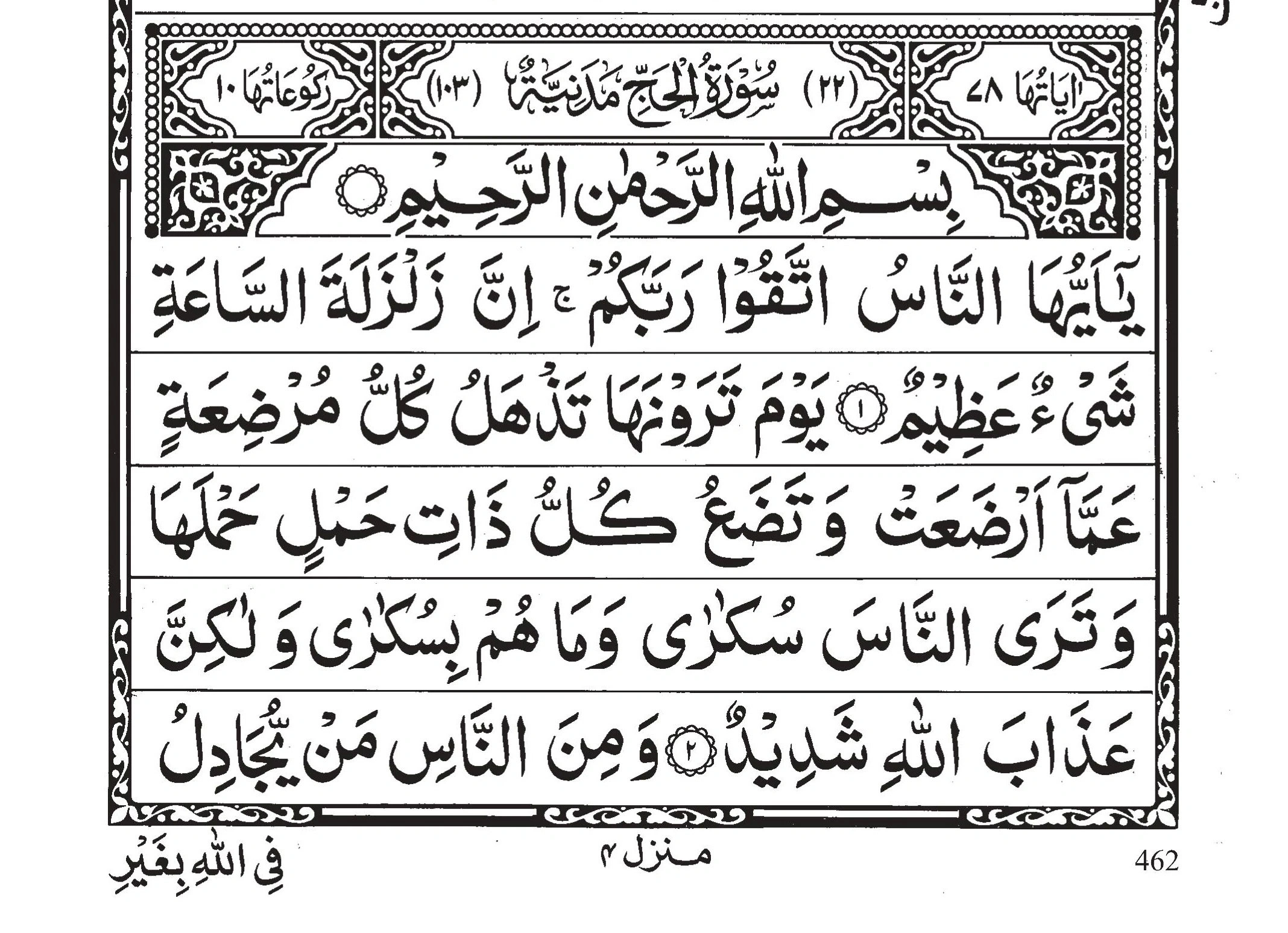
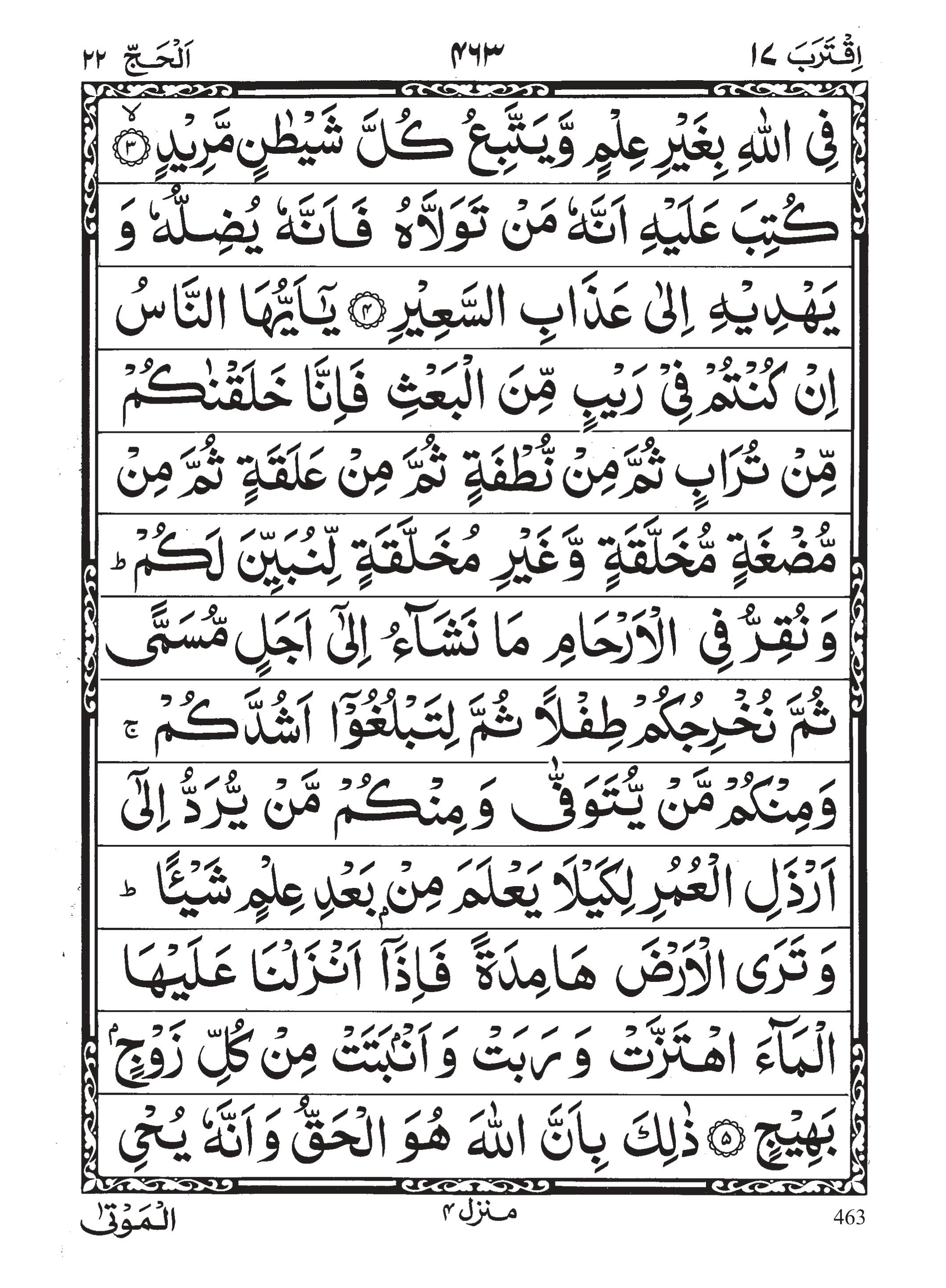
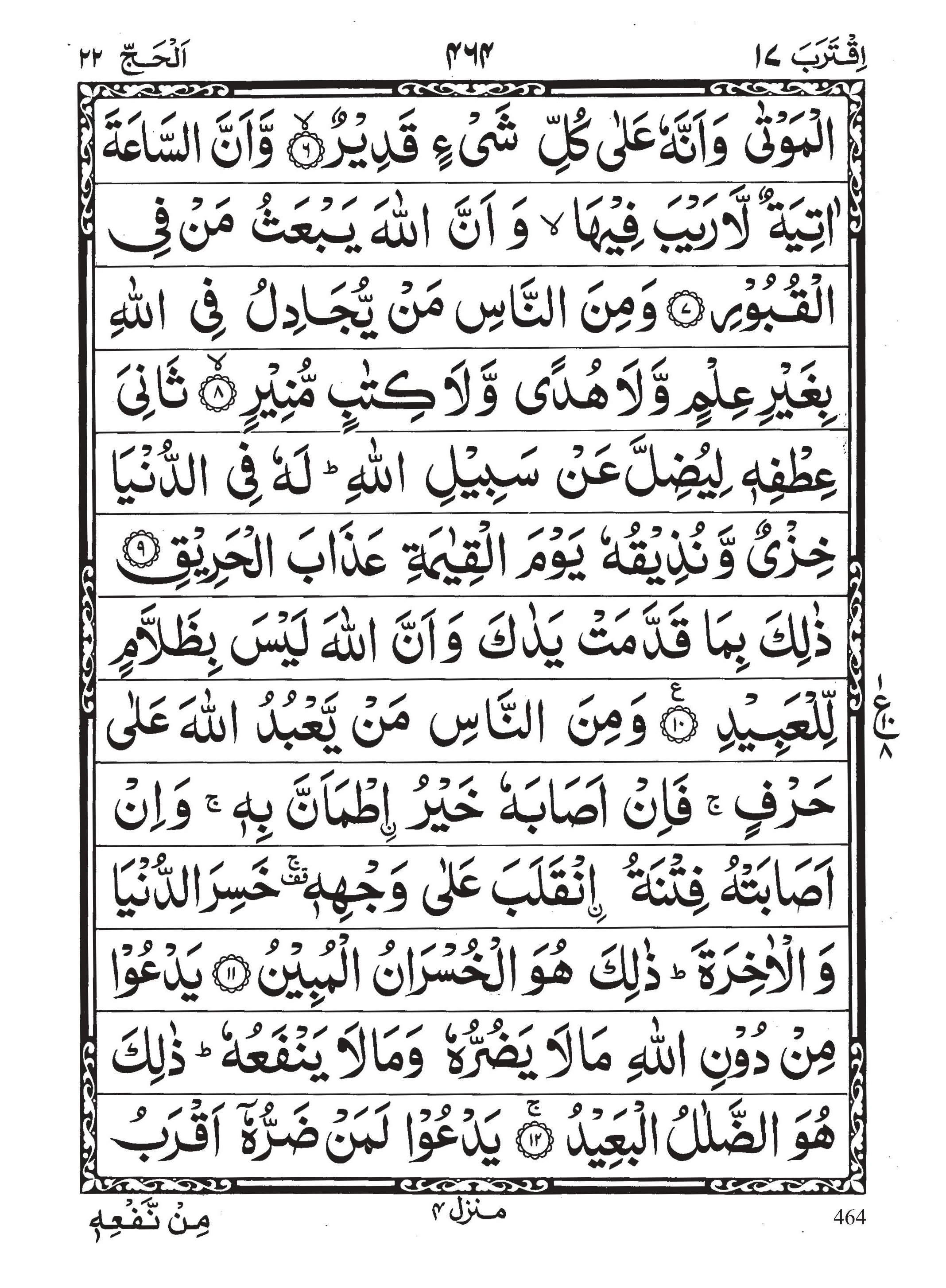
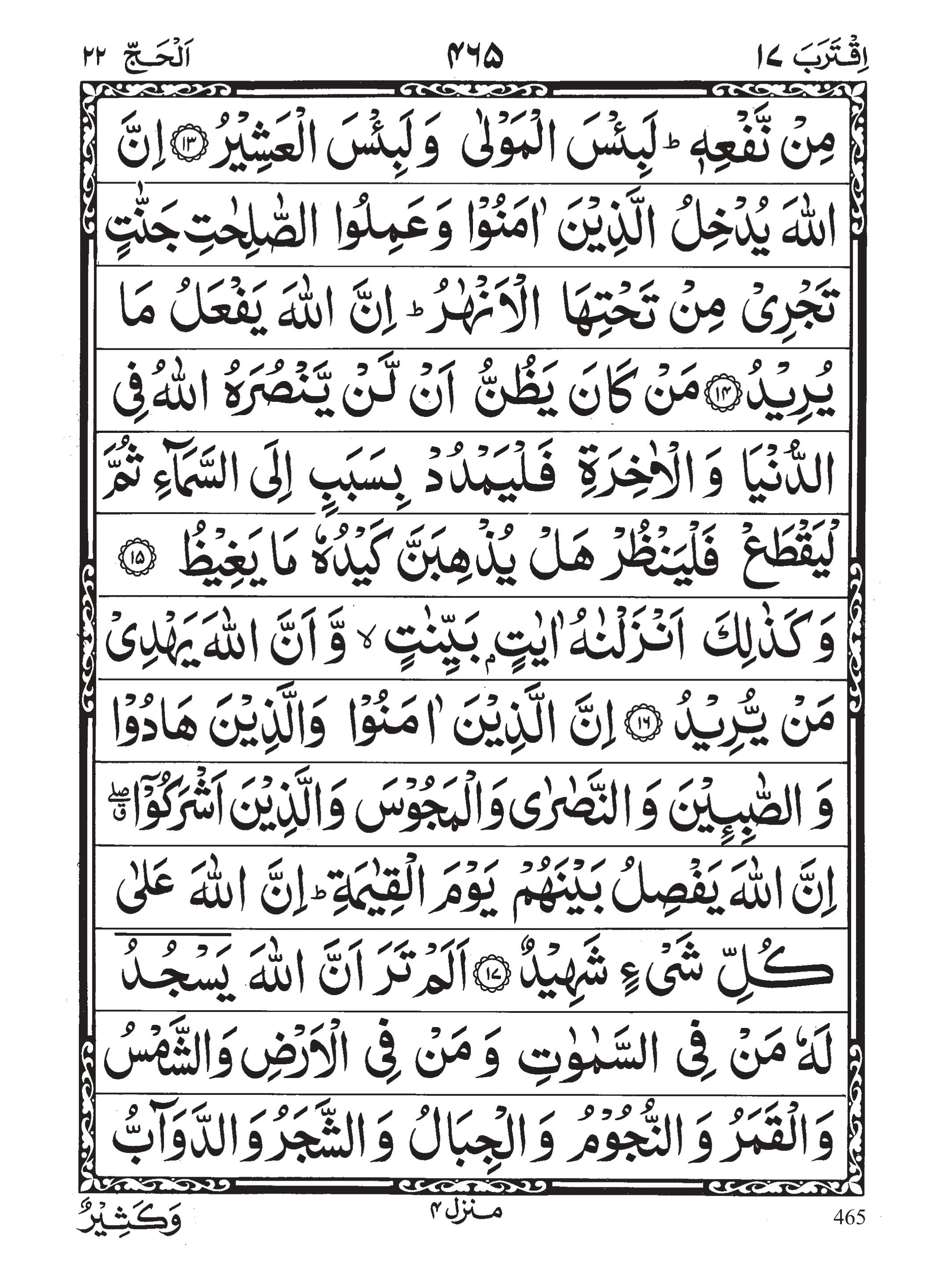
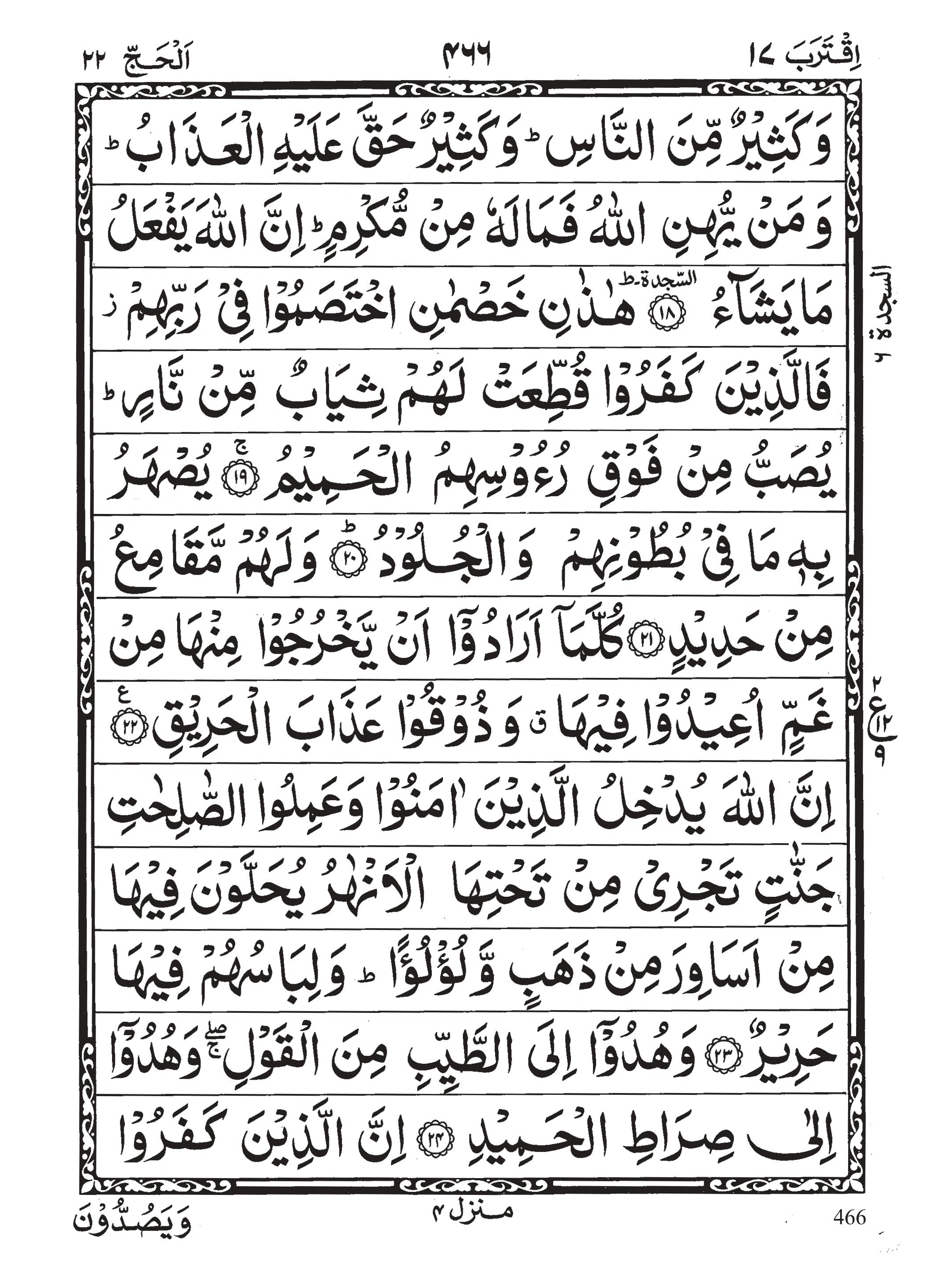
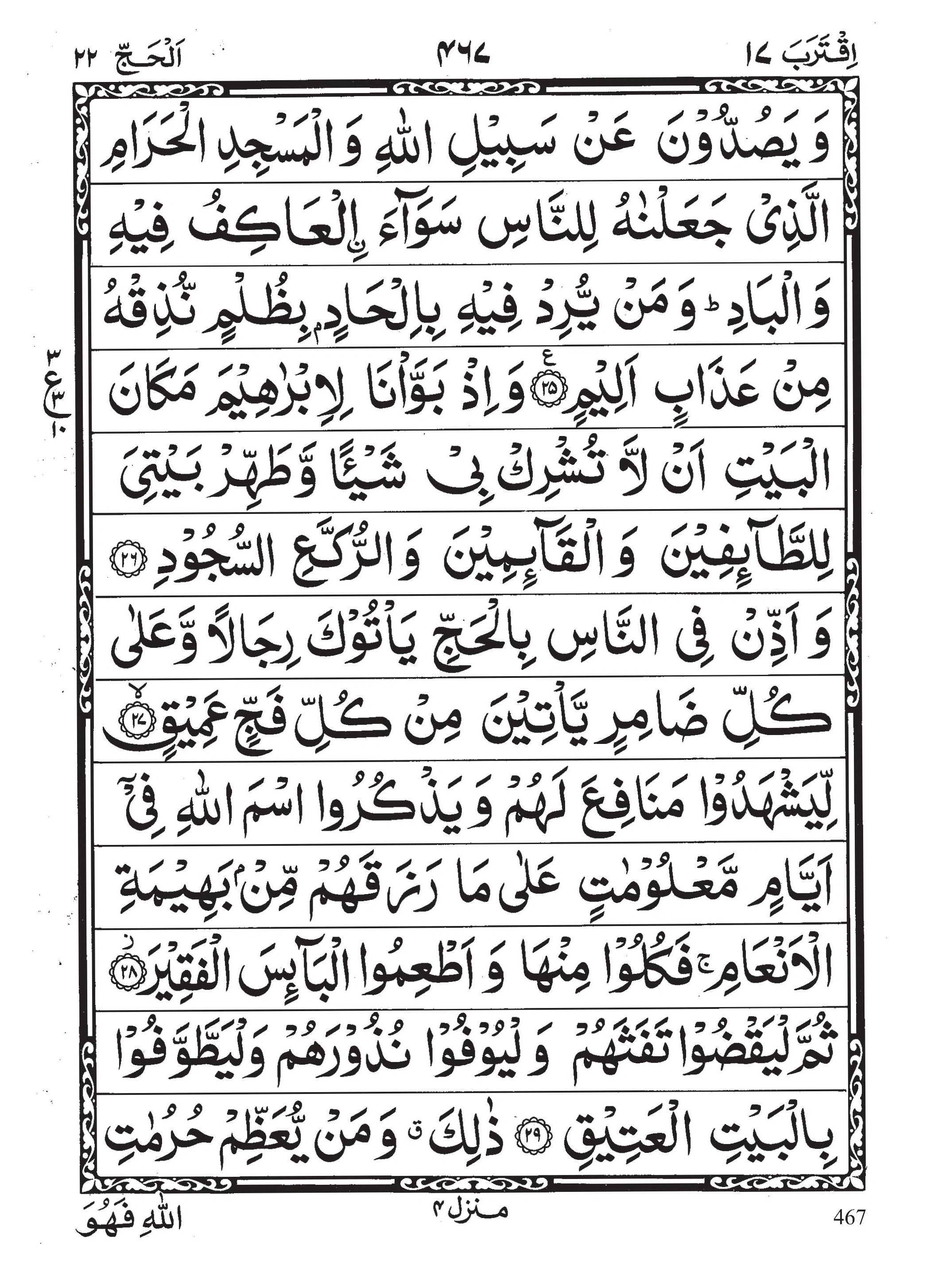
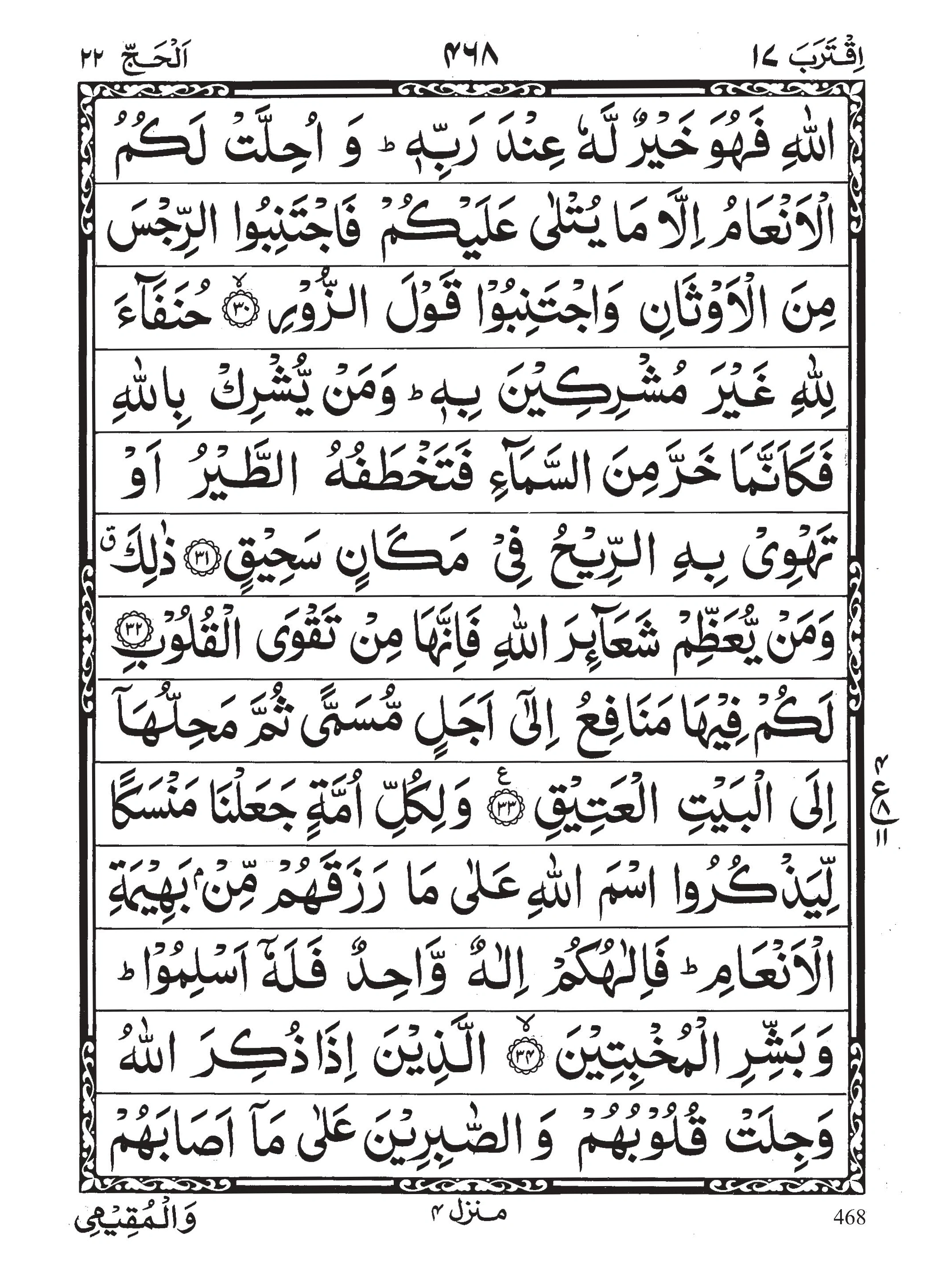
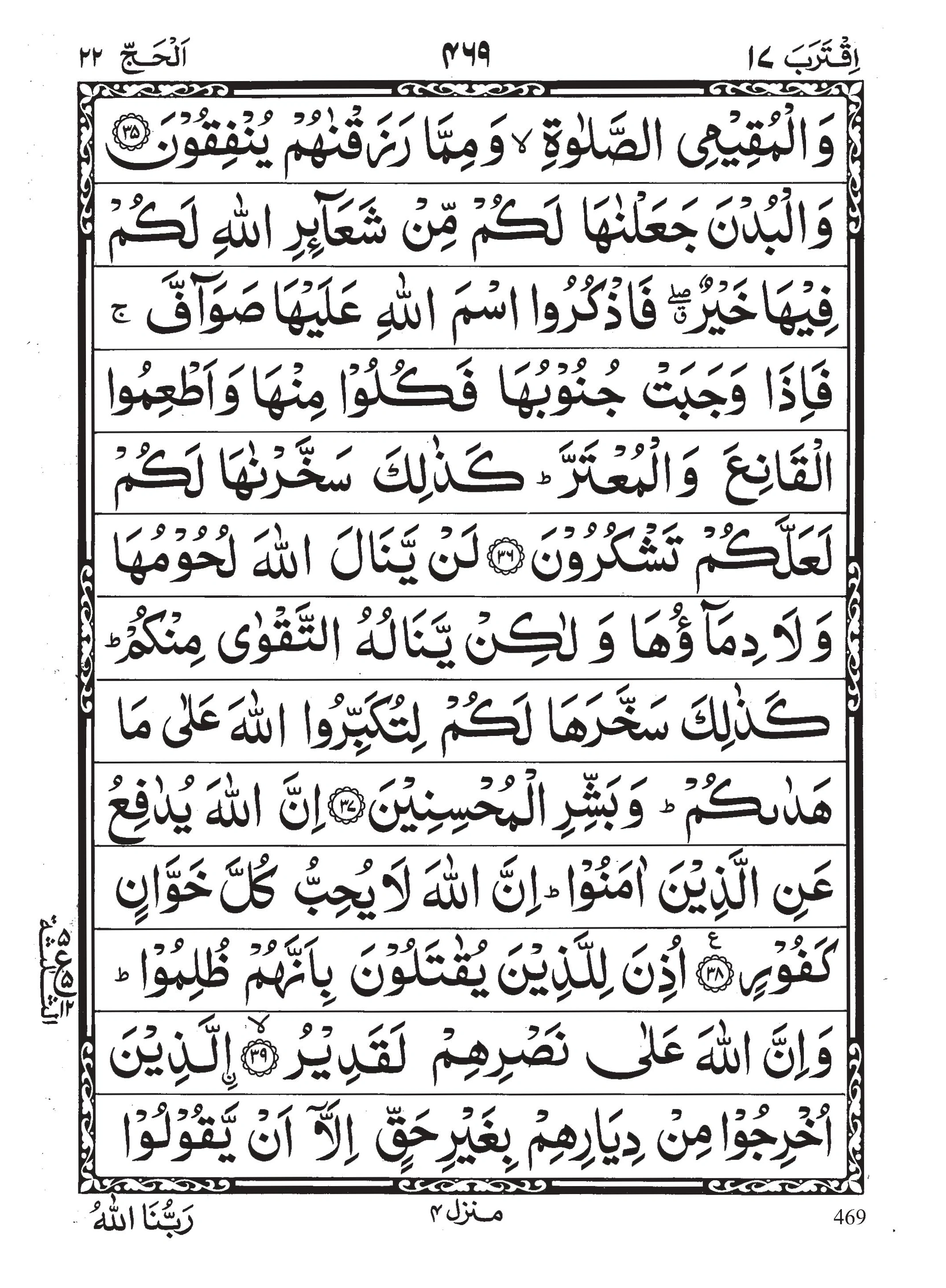
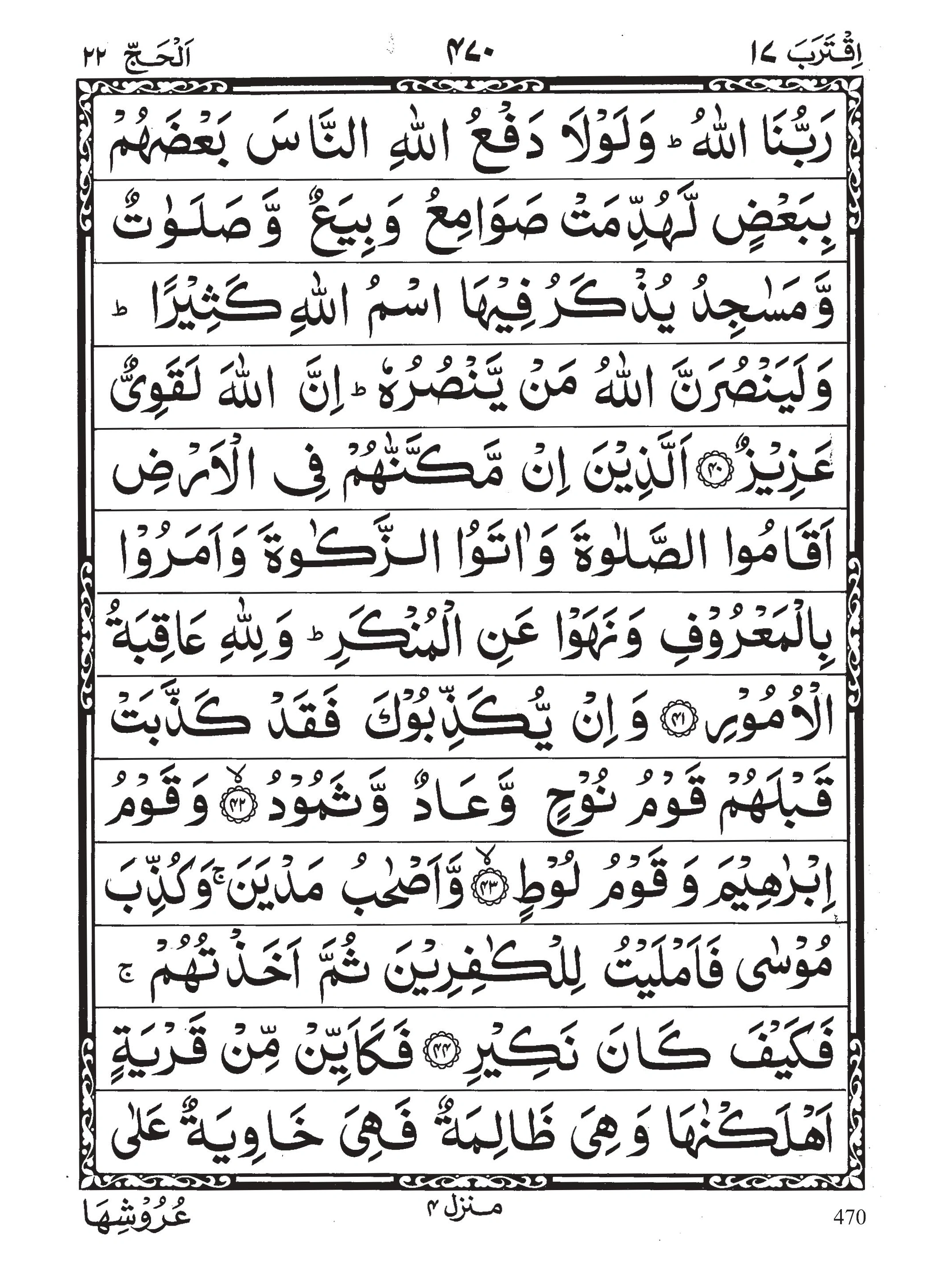
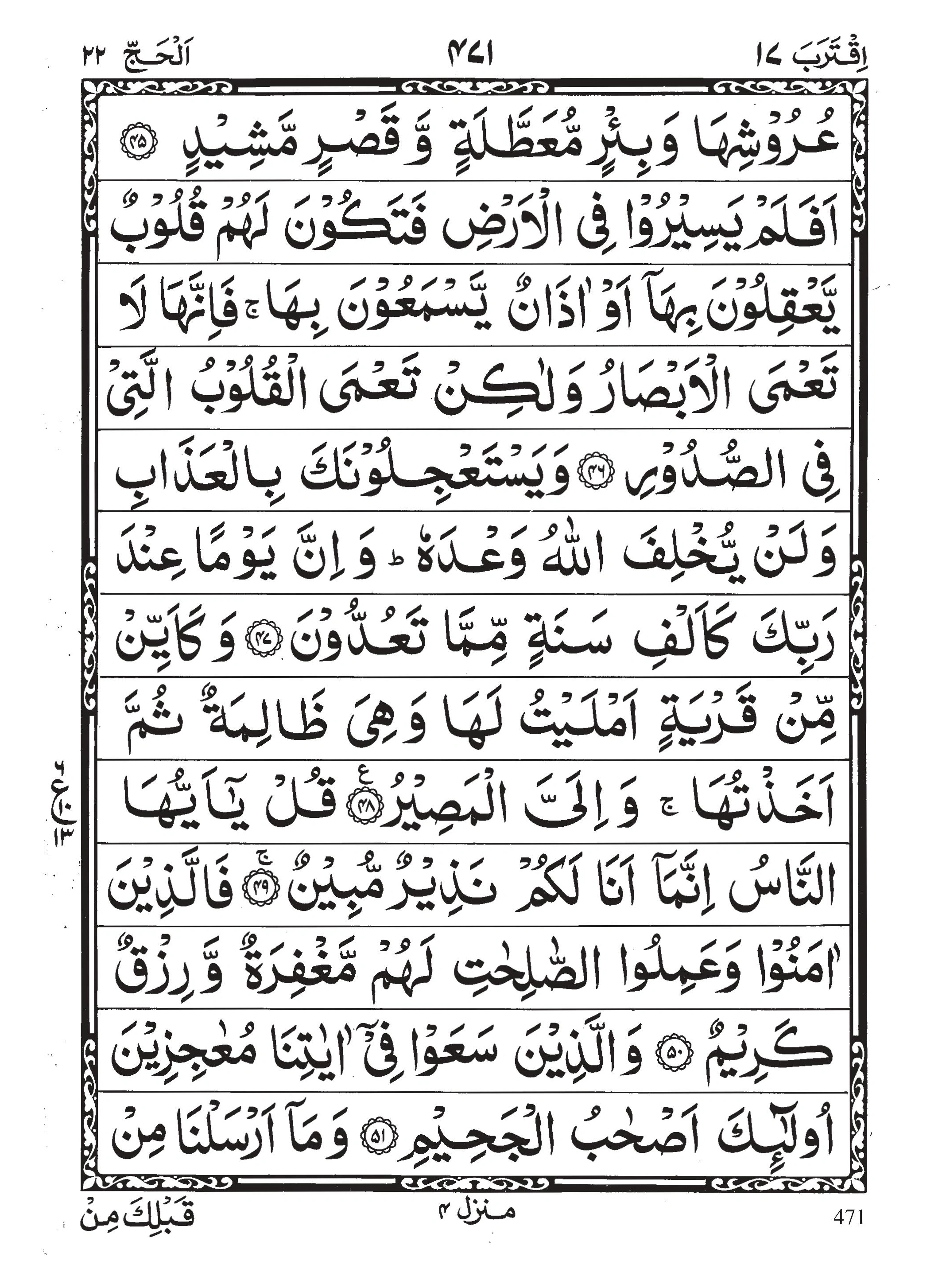
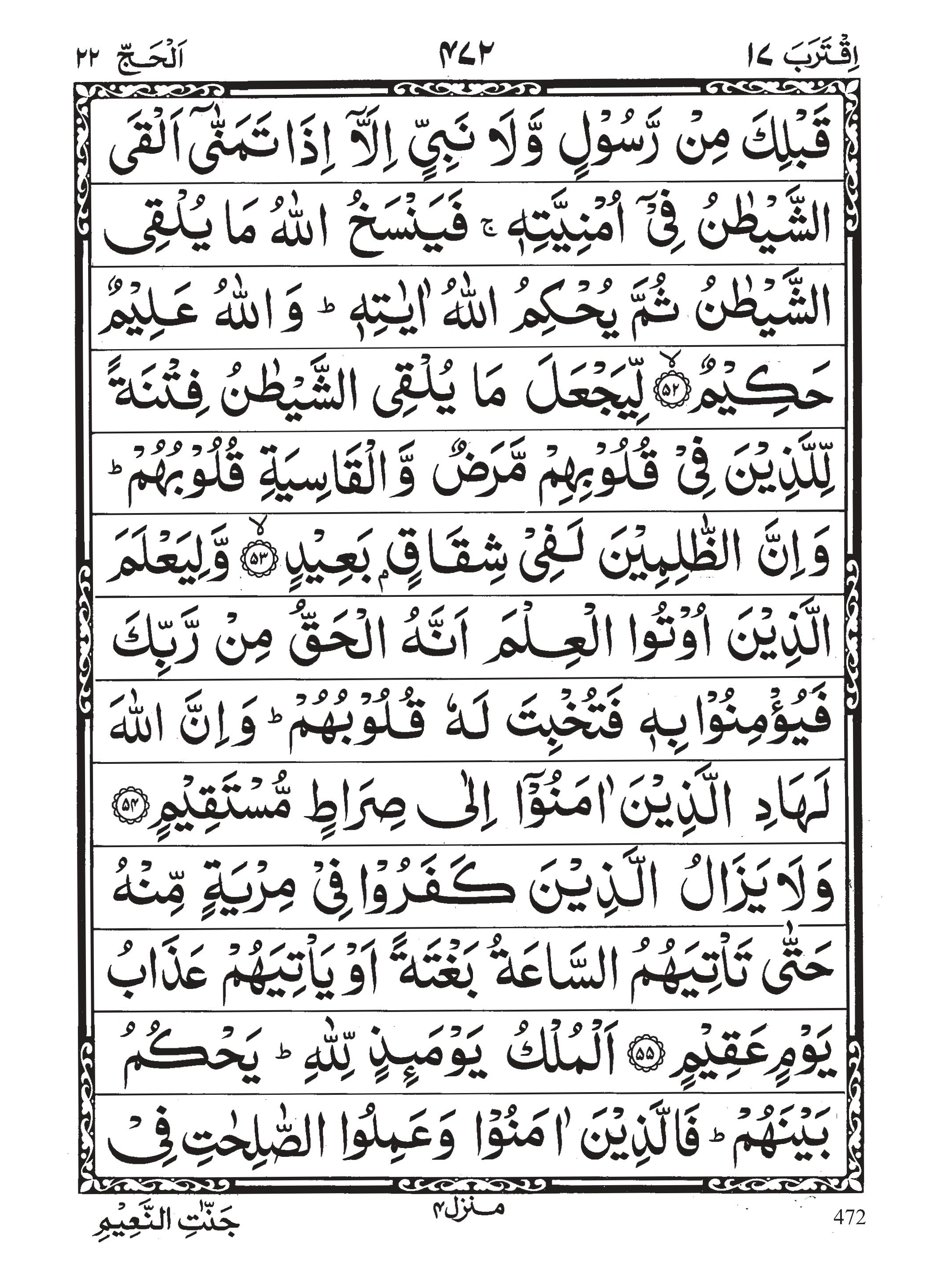
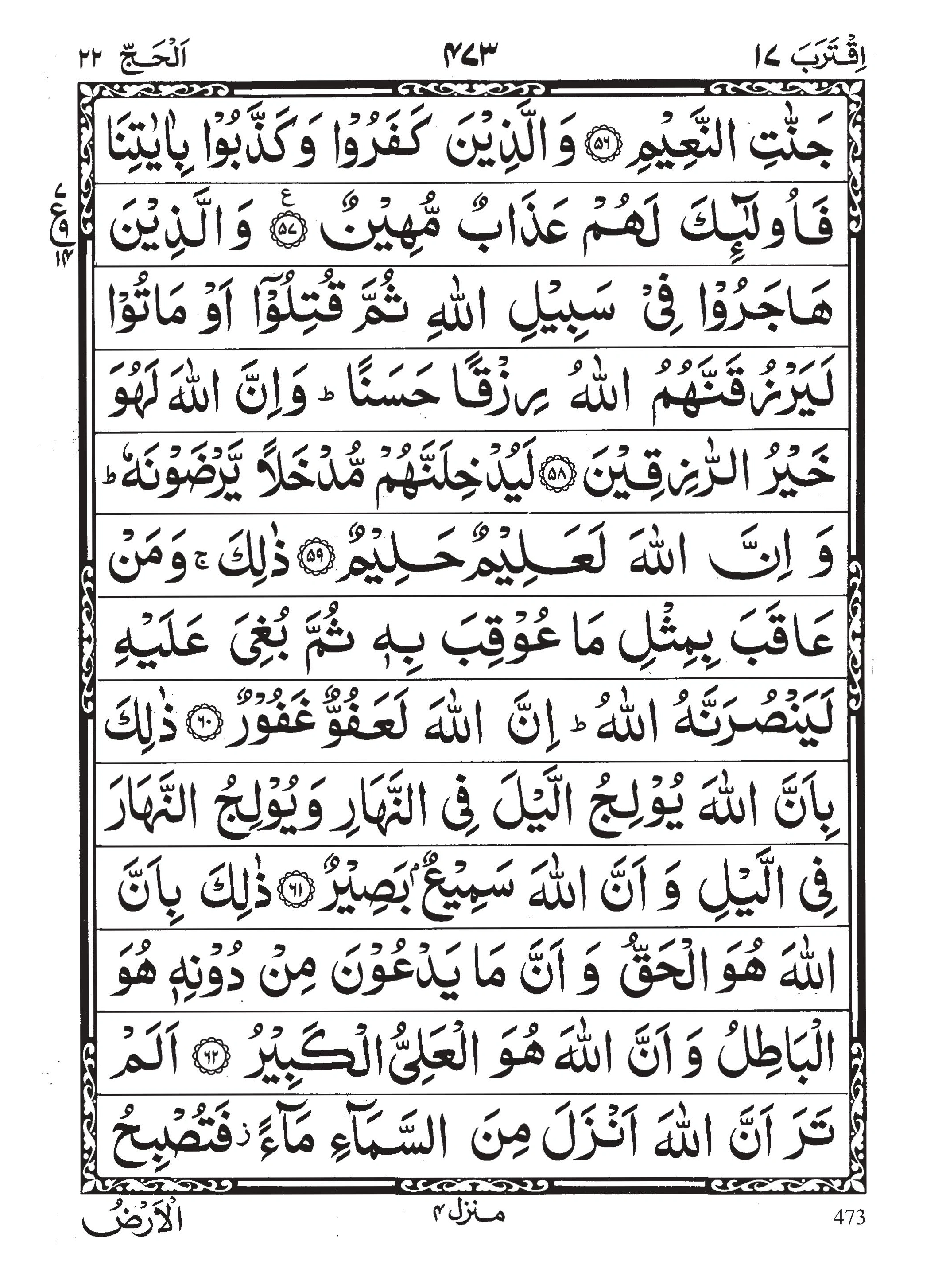
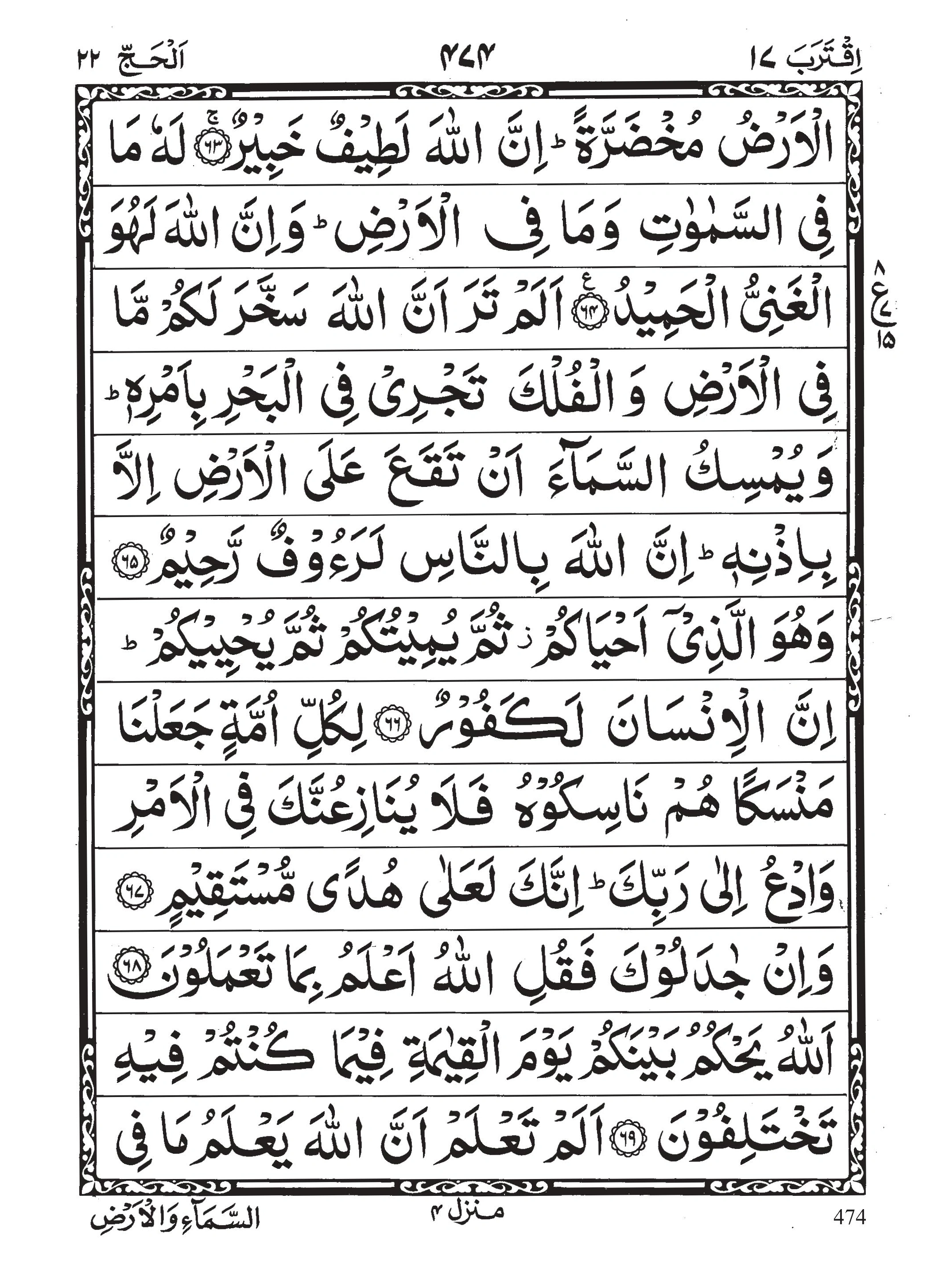
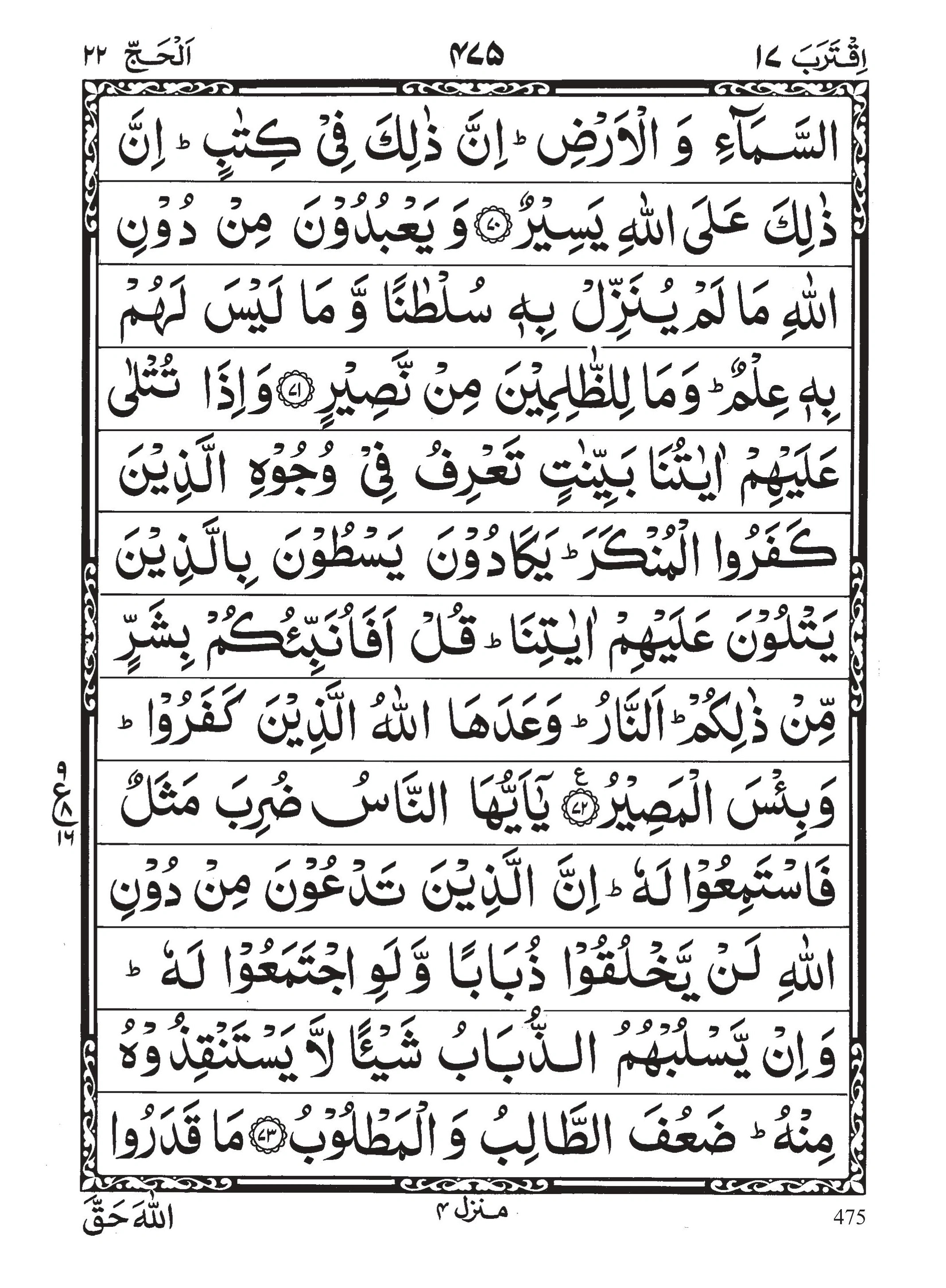
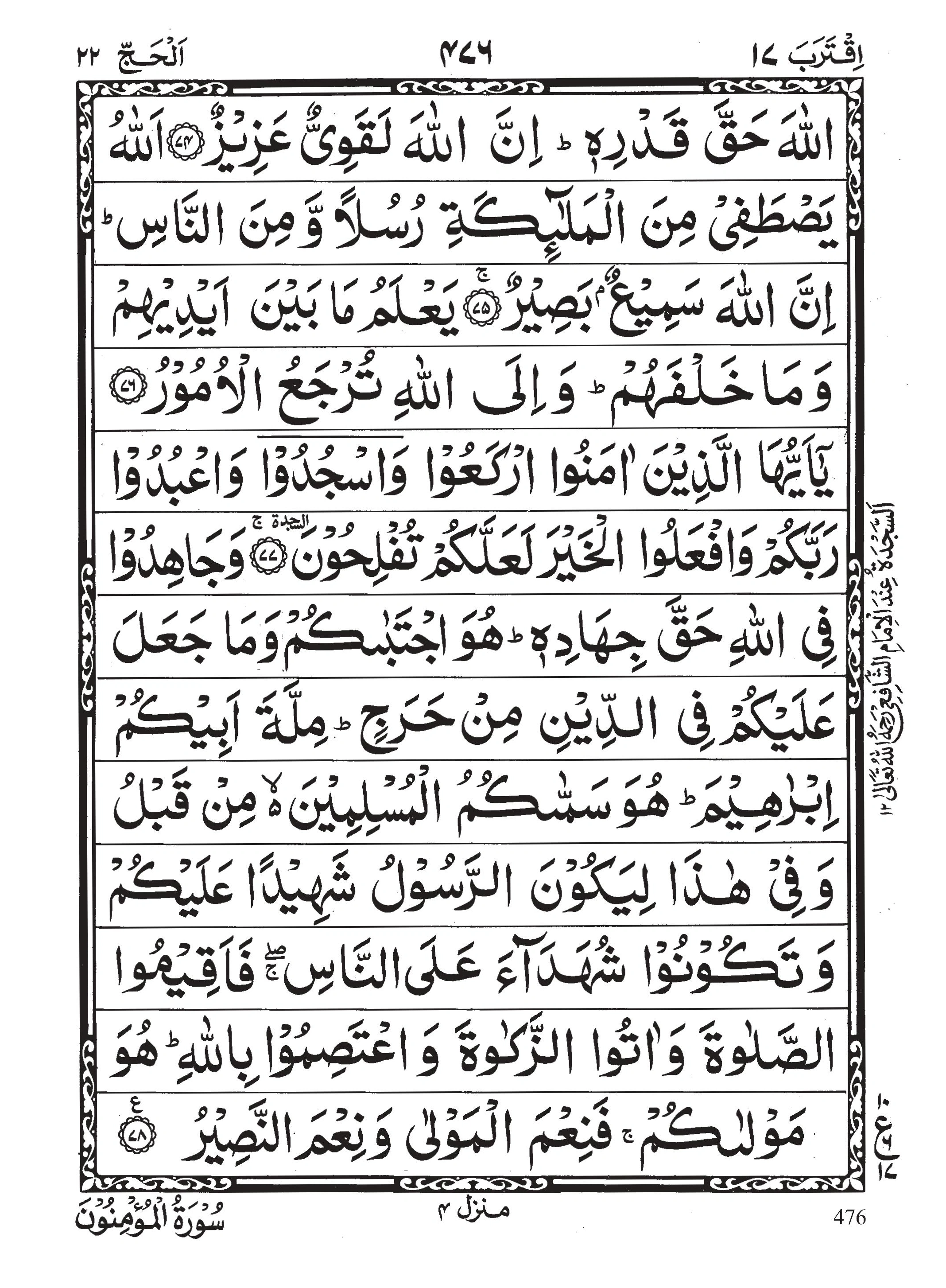
Surah Hajj Ayat
- The Surah emphasizes the position of Hajj in constructing the Ummah with Taqwa and Tawheed.
- The finest count number that one has to remember when he's visiting Allah is to set up Tawheed and avoid Shirk.
- The Surah ends with the command to worship Allah and do proper deeds. It commands Jihaad in His purpose [with one’s wealth, tongue, and body], with the aid of appearing Salaat and giving Zakaat, i.e. To fulfill the obligations closer to Allah through doing that which has been enjoined and to keep away from that which He has forbidden, similarly to maintaining rapid to Allah by searching for His help and help and setting one’s acceptance as true within Him.
Taqwa is a motion of the heart which is expressed by the movements of the limbs.
- The command with Taqwa of Allah and the one-of-a-kind classes of people in receiving this command and their recompense on the Day of Resurrection. This is proven definitely in surah hajj ayat 1 till 24.
- The Surah presents highbrow evidences that verify the lifestyles of the creator, and that Allah is the one who offers life and causes demise; he's the only one Who will resurrect the ones within the graves; the Hour is coming, there is absolute confidence about it; and the potential of Allah over all things. Its miles incumbent upon the Muslim Da’iyah to offer heed to intellectual evidence and realistic visible evidence because the disbelievers no longer believe in the Qur’an and Sunnah. Consequently, one should talk with them intellectually.
- The tale of constructing the sacred residence and the invitation of Allah to all His servants to go towards it to carry out Hajj.
- The Surah mentions rulings regarding Hajj, its benefits, its etiquettes and the wisdom behind all that while organizing the feeling of Taqwa inside the hearts, which is the main aim of Hajj.
- Permission is given for fighting inside the cause of Allah to guard the rights of Islam and acts of worship from the transgression of the enemies.
- The Surah suggests examples of the belying of the beliers and their evil quit.
- Exceptional sorts of hearts are stated on this Surah:
- The ill heart [22:53]
- The hardened coronary heart [22:53]
- The heart that is Mukhbit (humbly submits) [22:54]
- The blind coronary heart [22:46]
- The Surah honestly indicates the country of the disbelievers, their doubts and their wavering which never separates them.
- The distinctive feature of migration is the cause of Allah for the sake of helping the religion of Allah. Allah (Ta’ala) promised the immigrants provision in this worldly life and another one inside the Hereafter [as mentioned in verses 22:58-59].
- Allah (Ta’ala) units the proof towards the disbelievers using putting forth parables and examples, which include verse [22:31] and verse [22:73]
One of the wonders of this blessed Surah is the emphasis it places on the position of Hajj in establishing Taqwa in the hearts.
“surah hajj ayat 1 and 2), Allah (Ta’ala) addresses all of mankind, commanding them with Taqwa, that's to worry Him and hold their obligation to Him by obeying Him, and to keep away from His prohibitions. He is our Lord, Who has created us, disposed of our affairs, and nurtured us together with his advantages – the apparent and the hidden. He is the one Who merits to be feared, leaving behind Shirk, disobedience, and sins, and to carry out His instructions as a great deal as we can.”
Taqwa has 3 components:
A) Knowledge
B) Love, fear and wish
C) Appearing or avoiding
This means that while one acquires expertise approximately with Allah, His laws, what He loves, what He hates, and so forth, one is going along the course of Taqwa, and his coronary heart acts with fear, desire, and love for Allah. Thus, he expresses some of these feelings by appearing upon His commands and averting His prohibitions.
- So, have Taqwa, watch out, and avoid being of those whom Allah grants benefits and thanks apart from Allah.
- Have Taqwa and keep away from being of those whom Allah grants favors to strengthen them and help them to worship Him, and that they use His advantages in disobeying Him as opposed to being obedient to Him.
- Have Taqwa and avoid being ungrateful for Allah’s advantages.
- Have Taqwa and keep away from being of those whom Allah granted properly-being and ‘Aafiyah (in body, wealth, and many others.) and they defame and criticize folks who are poor and have defects.
- Have Taqwa and avoid being individuals who supply others questioning what they want from them.
- Have Taqwa and avoid being of folks who venerate and amplify apart from Allah or are connected to apart from Allah.
- Have Taqwa and keep away from following your dreams and pleasures, preferring that over the pride of Allah.
Instead, you ought to be an obedient slave of Allah, looking for His pleasure, and directing all of your efforts for His Sake and in His cause.
Therefore, two topics help and urge one to have Taqwa:
A) Understanding that Allah is his Lord Who nurtures him together with his benefits
B) Understanding about the earthquake of the Hour. Indeed, the earthquake of the Hour is a terrifying crisis.
FAQ's
Q: Surah Hajj in which Para?
Ans: Surah Hajj is in Para no 17.
Q: In which Surah Hajj is commanded?
Ans: Surah Hajj is commanded in 22 chapters of the Quran.
Q: How many Ayat in Surah Hajj?
Ans: There are 78 Ayat in Surah Hajj.
Q: Hajj is commanded in which Surah?
Ans: In Surah al-Baqarah, Surat ul-Maida, Surah Imran, Surah Fath, Surah Hajj and Surah Tawba.



.jpg)








Share your comments & questions here
No comments yet. Be the first to comment!